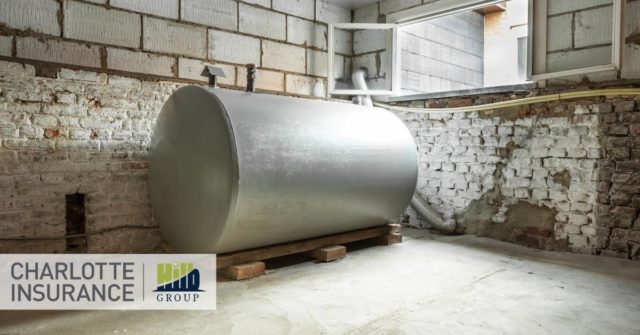Other than refilling your home’s heater oil tank, how much time do you spend thinking about it? Probably not much — until there’s a problem. Unfortunately, with oil tanks storing anywhere from 250 to 1000 gallons of oil, a “problem” gets big and expensive quickly.
If you think your homeowners insurance will cover leaks or damage to your oil tank, think again. Here’s what you need to know.
Homeowners Insurance and Leaky Oil Tanks
A standard homeowners insurance policy covers a lot of perils and pays to repair damage in and around your home. But one thing that’s not part of a typical policy is damage from a leaking oil tank, if the damage only impacts your property.
A leak in your oil tank might be the last thing on your mind, but it shouldn’t be. Without proper coverage, you’ll be responsible for the clean-up and repair costs. The average cost to clean-up after an oil tank leak is $8,000. In some cases, it can cost as much as $100,000.
To avoid that, you need oil tank insurance.
What is Oil Tank Insurance?
Oil tank insurance adds a layer of protection to your home and property in the case of damage or a leak in the oil tank that heats your home. In some cases it’s offered from the dealer when they sell a homeowner their heating oil tank. For most homeowners, this isn’t an option because you purchased your home with an oil tank already installed. That’s where an independent insurance agent can help.
As with all insurance coverage, there will be some exclusions, but in general, oil tank insurance covers the following:
Leak protection: If a leak occurs, your policy will pay for the damages, clean-up, repair, or replacement minus your deductible.
Repair coverage: Whether your oil tank is above ground or in-ground, it can be repaired so you can continue to use it to heat your home.
Replacement coverage: In some cases, your tank can’t be repaired. When this occurs your policy can pay to replace it. Ensure it for a value similar to your current tank so you can get a comparable one as a replacement.
Property damage coverage: This provides the coverage your standard homeowners policy doesn’t. If an oil leak damages your property, you won’t have to foot the entire bill. Your insurance will pay up to your policy limit (minus your deductible).
Oil Tank Inspection
Unlike other forms of coverage, oil tank insurance isn’t just a matter of calling up your independent insurance agent and requesting a quote. An oil tank inspection will need to be completed as part of the process. This makes sure there are no existing leaks before coverage begins.
It’s a good idea to purchase or maintain coverage when a new tank is installed. It’s also recommended that you have the tank inspected as part of the home buying process. The last thing you need is to move in and discover you have a leak and that you can’t get your tank insured.
Oil Tank Insurance Transferability
In some cases, oil tank insurance coverage may be transferable when a home is sold. This will not always be true, so it’s important to read the fine print and make sure you have documentation from the former owner. Discuss this with your real estate agent and your insurance agent to make sure the policy really is transferring to you upon completion of the sale and to understand the details of the existing policy.
Have questions about oil tank insurance? Want to start the process to purchase your own policy? Contact Charlotte Insurance, today!

